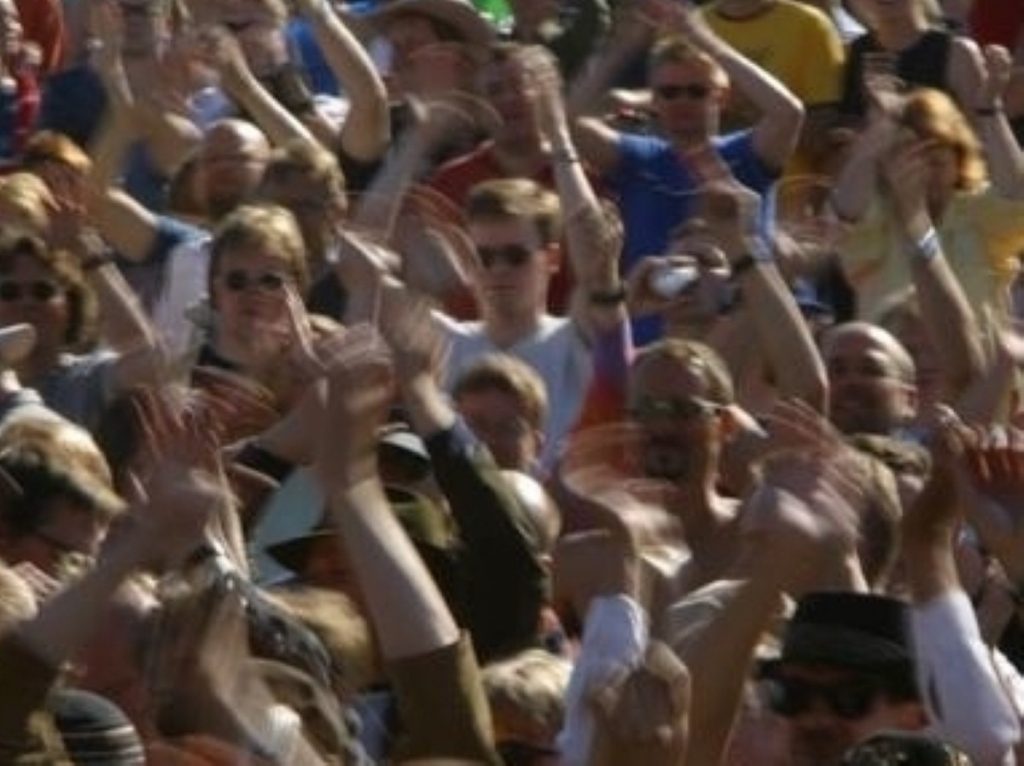Election aftermath: The public
In the third part of a special week-long series of features, politics.co.uk looks at what the election tells us about the public.
By Ian Dunt
The public is a strange beast. People make sense and say intelligible things. The public as a whole often doesn’t.
The year 2010 should have marked the end of the two-party system. The expenses scandal, a hated Labour government and an unloved Conservative opposition should have signalled a breakthrough for Nick Clegg’s Liberal Democrats.


Cleggmania seemed to reflect this assumption. As soon as the public saw him its approval reached fever-pitch. Journalists, activists and academics got terribly excited. But it didn’t happen. The Lib Dems increased their share of the vote marginally, but actually lost seats.
What went wrong? The best bet is that with the economic situation as it was, voters got into the voting booth and decided it wasn’t the time to try out a newbie. Clegg himself came out with the most believable interpretation of the result. “Many, many people during the election campaign were excited by the prospect of doing something different,” he said outside Lib Dem headquarters when the results became clear. “But it seems that when they came to vote, many of them, in the end, decided to stick to what they knew best.”
The truth is many of us spent election night desperately trying to ascertain a pattern. There simply wasn’t one. In Solihull, for instance, Lib Dem Lorely Burt managed to cling on, and even earn a 3.5% swing to the Lib Dems. But over in Montgomeryshire, Lembit Öpik was dismissed, with a swing to the Conservatives of 13.8%. At the start of the evening this was to be expected, but the surprises kept on coming until well after sunrise.
These discrepancies would have made sense if it had been an election fought predominantly on local issues, but it wasn’t. Almost every single candidate I spoke to through the campaign said national issues were playing a larger role than local ones.
Even from this vantage point, with nearly two weeks passed since the result, we still don’t properly understand what happened. But we have, funnily enough, ended up with our original assessment: the end of two-party politics.
The public handed politicians a flawlessly crafted conundrum, like the Rubik’s Cube of British election results. The Tories and Lib Dems couldn’t work together because of their positions on electoral reform and their underlying philosophical differences. Labour couldn’t form a pact with the Lib Dems because they didn’t have the numbers. A Tory minority would have survived mere months, at best. The public denied the Tories a majority, but they also denied Clegg enough votes for him to seek coalition with Labour. The Lib Dems went with the least worst option and got into bed with the dreaded Conservatives.
It’s absurd to claim that the public tactically voted to secure this scenario. It clearly did no such thing, but through a precise series of results, it forced the politicians to do what the public wanted. Like some stern adult locking two children in a room together until they learn how to be civil, the public got its result.
We can posit two things about the public’s desires. Firstly, it did not believe any one party could be trusted to form a government. Secondly, it is sick and tired of what David Cameron once termed ‘Punch and Judy politics’.
This much was evident from studiously watching the focus group ‘worms’ during the TV debates. Whenever two of the leaders started bickering, both their approval ratings dipped. We appear to have developed an appetite for consensus, no matter how European that may sound. The public clearly wants the coalition to work. We can expect it to have a lengthy honeymoon.
This cannot last forever: good political ideas emerge through the scientific principle of challenge and counter-argument. But for the time being, the public appears to be getting what it wanted. You could even form a convincing historical argument that a cross-party approach is the best context for a divisive debate on spending cuts to take place.
Regardless, the British public has proved as complex, frustrating and wise as its reputation suggests: its actions are even now impossible to analyse, but it got exactly the result it wanted.












